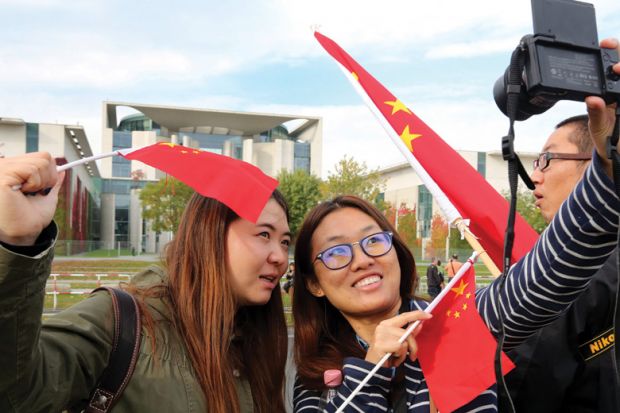Chinese students at Western universities are often seen as lacking critical thinking skills – and China’s supposedly authority-revering traditional culture often gets the blame.
But this view has been challenged by research from a Chinese-born scholar who believes that students’ failure to think independently is just as likely due to Communist Party propaganda during education rather than any deeply ingrained cultural difference.
Tao Zhang, a lecturer at Nottingham Trent University, interviewed 16 Chinese students studying for master’s degrees in journalism and media at her university.
While most were unconvinced by the party line in undergraduate-level propaganda, Dr Zhang argues it nonetheless erodes their ability to think independently.
In addition to their own discipline, Chinese undergraduates have to study four compulsory topics: Marxism; Mao Zedong Thought; modern Chinese history; and “moral, legal and civic education”.
The textbooks for these subjects “treat students as passive targets of political-ideological propaganda” and deprive them of the chance to “develop their critical disposition and exercise rational thinking and reasoning”, according to “Why do Chinese postgraduates struggle with critical thinking? – some clues from the higher education curriculum in China”, provisionally accepted by the Journal of Further and Higher Education.
Asked what they understood by critical thinking, one student told Dr Zhang: “It was new to us. We did not hear of it in China and find it very difficult. We have no idea of how to be critical and critical of what."
In the UK, “you need to present evidence and references to support your views and we did not have to do that in China”, they added.
Three-quarters of the students interviewed said that they had ignored the content of the propaganda and only studied it to pass their exams. However, two of those Dr Zhang spoke to said that it had deeply influenced their thinking.
“I can construct an analysis but the end always has a positive outlook and a slogan like this: ‘China is good, socialism is good’. It can’t be negative,” they explained. But they said that they were now aware of an alternative way of thinking.
Two others had actively rejected the propaganda, and said that they were aware of how their history textbook omitted to mention the Tiananmen Square massacre of 1989.
后记
Print headline: Critical thinking skills stymied by ‘propaganda’




